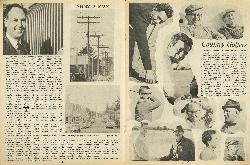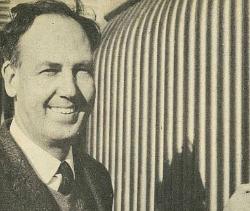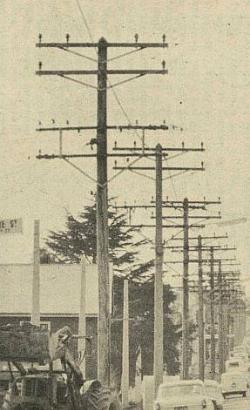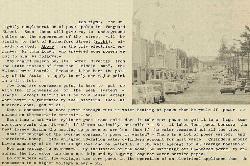42
Some Facts
The Council's electricity department in its last financial year made a net profit of $123,477. The Waimea Power Board's net surplus was $151,600. Quite large sums. The question many consumers may want to ask, then, is: "Why cannot our power charges be lowered when such big profits are being made?" We feel that the answer must be, for both organisations, that, as efficient businesses, each should show a healthy profit each year. The money is being ploughed back into the respective areas. In an area as vast as that controlled by the Power Board, large sums must be spent on repaying loan charges and extending reticulation. The board is at present seeking authority to raise a new loan of $250,000 for further reticulation. In Nelson the electricity department has not had to raise any loans to cover capital works, the profits on the year's trading being used. At top right, the unsightly conglomeration of power poles in Vanguard Street. Soon these will give way to underground cables and the appearance of the street will be similar to that of Rutherford Street (right), already updated. Above, is the city electrical engineer, Mr John Logan, who answered some posers we put to him, as follows:-
Why cannot Nelson buy its power directly from the' State instead of from the "middle man", the Waimea Power Board? - Pecause it has been the policy of the State to supply to only one major point in a district.
Now long are consumers going to have to put up with the inconvenience of the peak system? -Always, except that it will be to a lesser extent when power is generated by fuel stations such as nuclear, coal, gas or oil.
Does a consumer use more power through cuts in water heating at peaks than he would if power remained on thermostatic control? - No.
Each time a hot water cylinder goes stone cold, does it take more power to get it to a high temperature again than it would if thermostatically controlled? - No, it takes less power because the heat losses during the heating up processes are less than if the water remained hot all the time.
What percentage of the average consumer's power is wasted? - There is a lot of power wasted, and, therefore, money. Old, unlagged 30-gallon water cylinders account for most. waste. Cylinders should have a capacity of at least 40 gallons and. be heated by a 1500 watt element for an average household.
How can wastage be overcome? - By insulation of the home; by switching off un-needed power; by ensuring the hot water tap does not drip and by lagging long hot water service pipes.
Do consumers with low voltages use more power in the operation of an electrical appliance than do consumers in a higher voltage area? - No.






